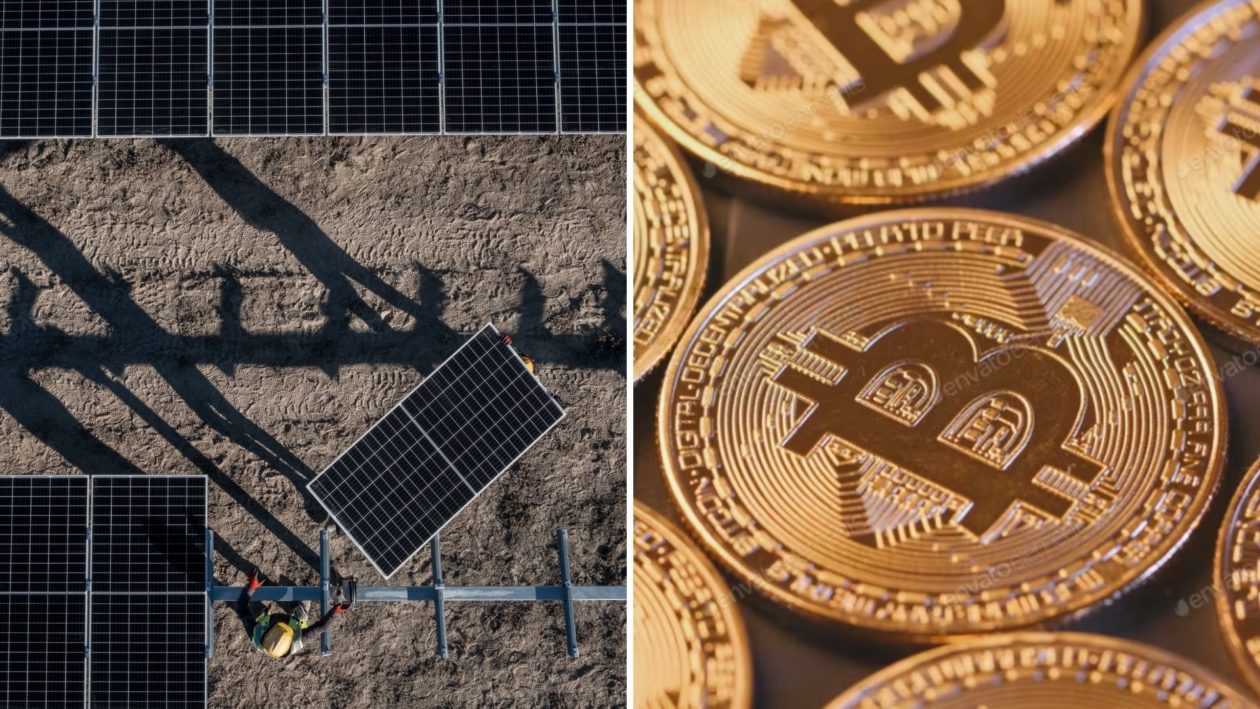Bitcoin is often criticized for its environmental impact, but some within the industry argue mining the world’s largest cryptocurrency could actually assist countries like Australia in resolving one of the riddles that’s blocking the uptake of renewable energy.
Australia is blessed with an abundance of renewable energy sources, particularly solar, yet it is also hamstrung by a mismatch between peak generation of green energy and peak consumption hours.
“There’s an opportunity for very smart demand to soak up that extra supply,” said Sally Torgoman, energy sector partner at KPMG Australia.
She along with other experts believes that Bitcoin mining could be a solution to help boost energy consumption at certain times of the day, leading to a more predictable demand environment and helping resolve the price discrepancy between day and nighttime electricity rates.
Economists say more stable electricity pricing is what’s needed to economically incentivize the building of renewable energy plants.
“We actually have a demand-supply challenge [in the power grid] in that there’s plenty of opportunities for renewables, as thermal coal plants continue to retire there will be times of the day with an overabundance of particularly daytime energy,” Torgoman said.
In spite of a high per capita rooftop solar installation rate nationwide, Australian homeowners have found the price they are able to sell power back to the grid plummeting in recent years. Adding to the problem, coal-powered thermal power plants generally operate at a constant pace on a 24-hour cycle, exacerbating the daytime electricity capacity glut.
Nasdaq-listed Iris Energy believes Bitcoin mining could be one way to tackle the power glut and help Australia transition to renewable energy.
“If we bring in [demand for power] that solves that, all of a sudden there’s a market price signal to build out more renewables to retire that legacy fossil fuel generation,” Daniel Roberts, co-founder and CEO of Iris Energy, said in a telephone interview with Forkast from the company’s headquarters in New South Wales.
Iris Energy, founded in 2018, is a collaborative venture between Roberts and his brother Will, leveraging their respective backgrounds in energy infrastructure and finance. The company operates a 30MW data center in Canal Flats, British Columbia and has a number of sites under development in Australia.
Roberts said the energy consumed in maintaining Bitcoin’s blockchain ledger could help create a market price point for locally produced renewable energy and encourage new investment in the sector.
“You can’t retire that legacy fossil fuel generation because there are not enough renewables in the mix, and there are not enough renewables in the mix because there’s no market price signal,” he said.
As part of its smart demand model, Iris Energy only mines Bitcoin when there is available excess renewable energy. For example, if consumer demand were to surge due to weather, the company can quickly power down its Bitcoin mining operations.
“We never want to be accused of taking power away from mums and dads, never want to be accused of pushing up power prices to general industry, regardless of whether it’s renewable or not,” Roberts said.
Other industry experts cautioned that the focus on electricity consumption was not the right long-term approach when it comes to developing Australia’s renewable energy industry.
“It could be a case of theory and reality having a slight variation,” said David Green, co-founder of Australian renewable energy firm Teho. “What we really need is storage, that’s the way to sort out our grid long term.”
Green said he was skeptical Bitcoin mining operations could be rolled out on a scale that would have a meaningful impact on Australia’s domestic renewables sector.
Others cautioned that the smart demand model comes with hidden economic risks that could make Bitcoin mining economically unfeasible.
Rajkumar Buyya, Professor of Computing and Information Systems at the University of Melbourne, said the need to power down mining operations during peak consumer hours would negatively impact the bottom line for Bitcoin miners who face expensive hardware upgrade cycles every three to four years.

